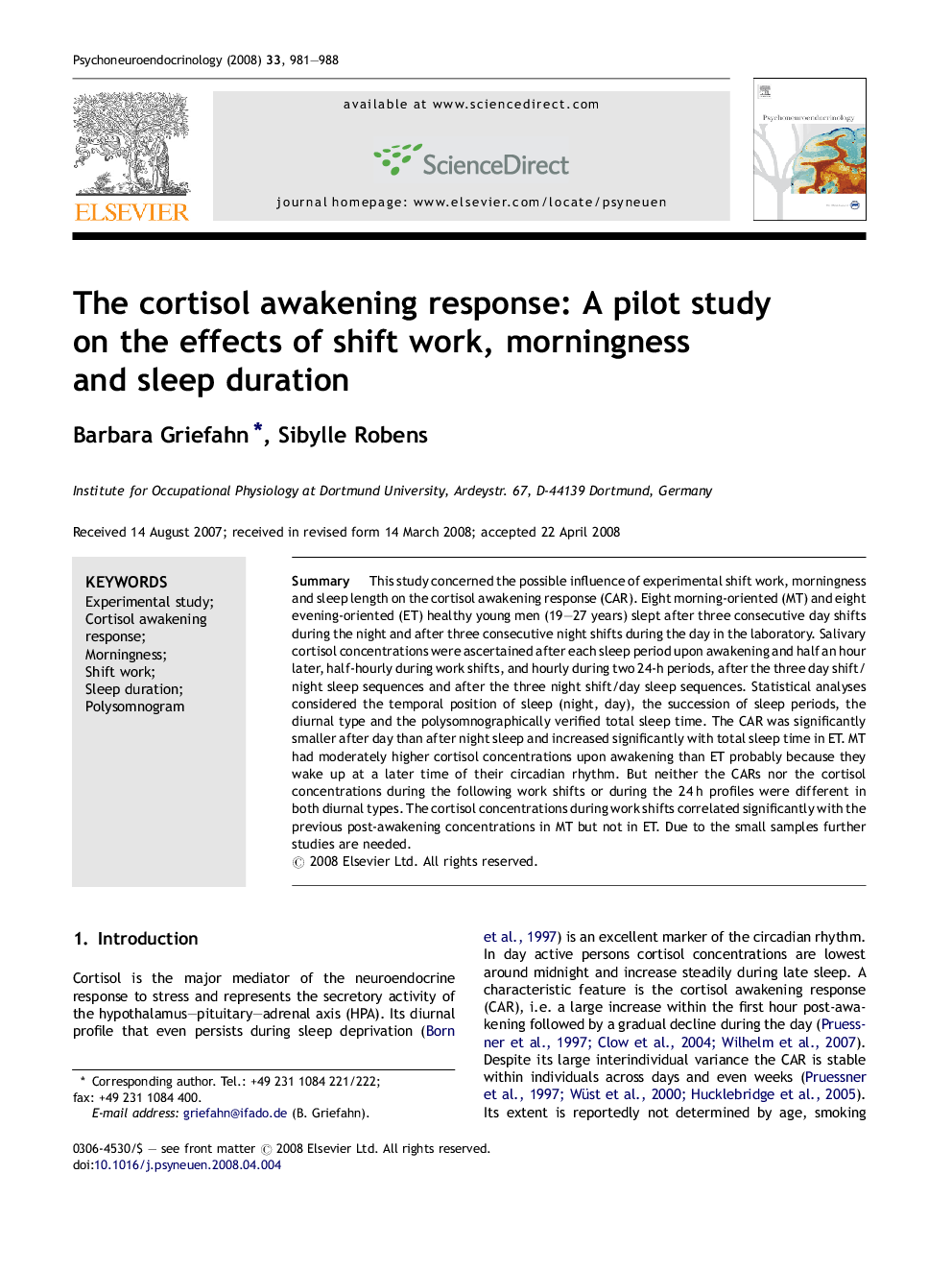| Article ID | Journal | Published Year | Pages | File Type |
|---|---|---|---|---|
| 336298 | Psychoneuroendocrinology | 2008 | 8 Pages |
SummaryThis study concerned the possible influence of experimental shift work, morningness and sleep length on the cortisol awakening response (CAR). Eight morning-oriented (MT) and eight evening-oriented (ET) healthy young men (19–27 years) slept after three consecutive day shifts during the night and after three consecutive night shifts during the day in the laboratory. Salivary cortisol concentrations were ascertained after each sleep period upon awakening and half an hour later, half-hourly during work shifts, and hourly during two 24-h periods, after the three day shift/night sleep sequences and after the three night shift/day sleep sequences. Statistical analyses considered the temporal position of sleep (night, day), the succession of sleep periods, the diurnal type and the polysomnographically verified total sleep time. The CAR was significantly smaller after day than after night sleep and increased significantly with total sleep time in ET. MT had moderately higher cortisol concentrations upon awakening than ET probably because they wake up at a later time of their circadian rhythm. But neither the CARs nor the cortisol concentrations during the following work shifts or during the 24 h profiles were different in both diurnal types. The cortisol concentrations during work shifts correlated significantly with the previous post-awakening concentrations in MT but not in ET. Due to the small samples further studies are needed.
